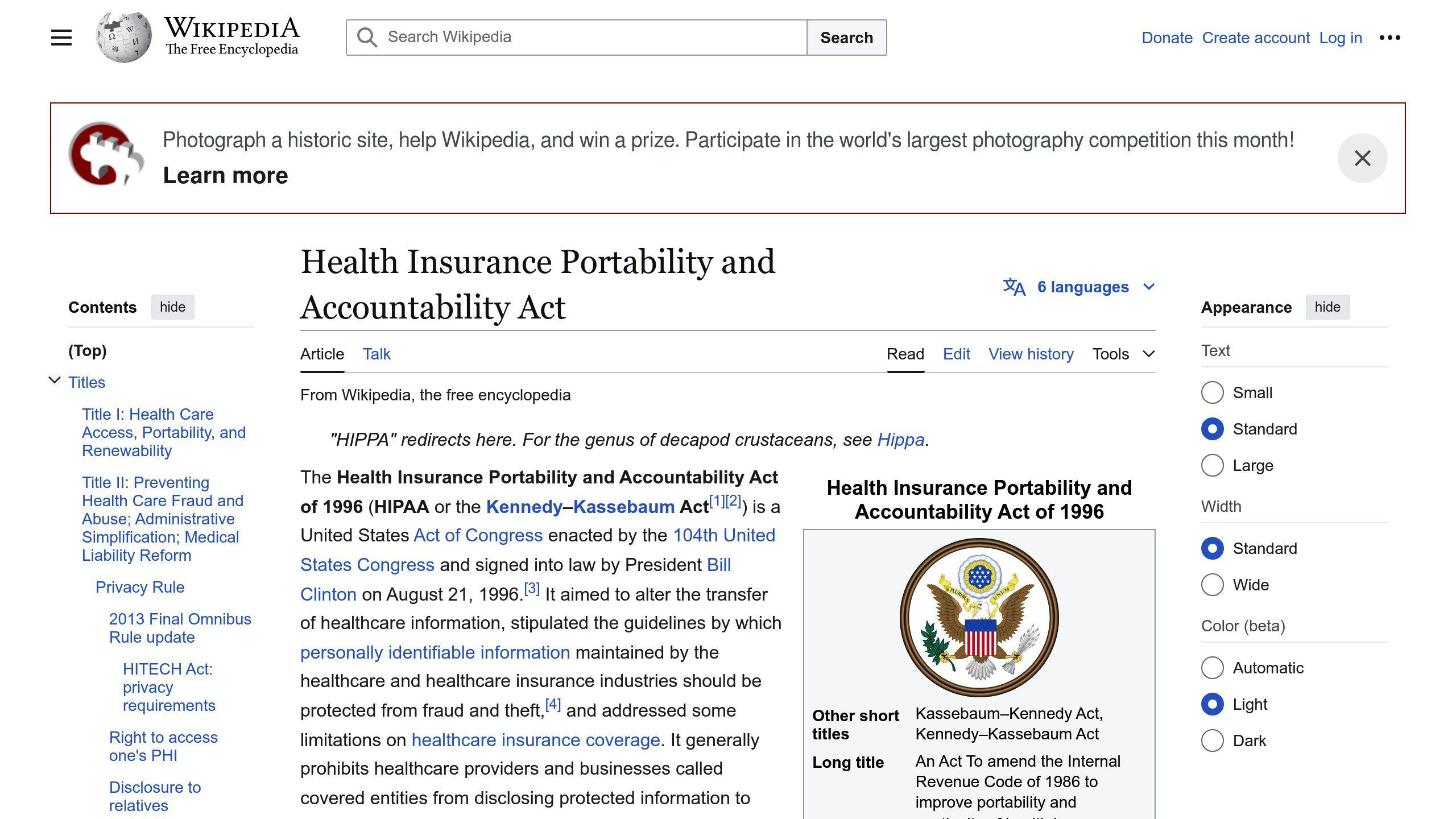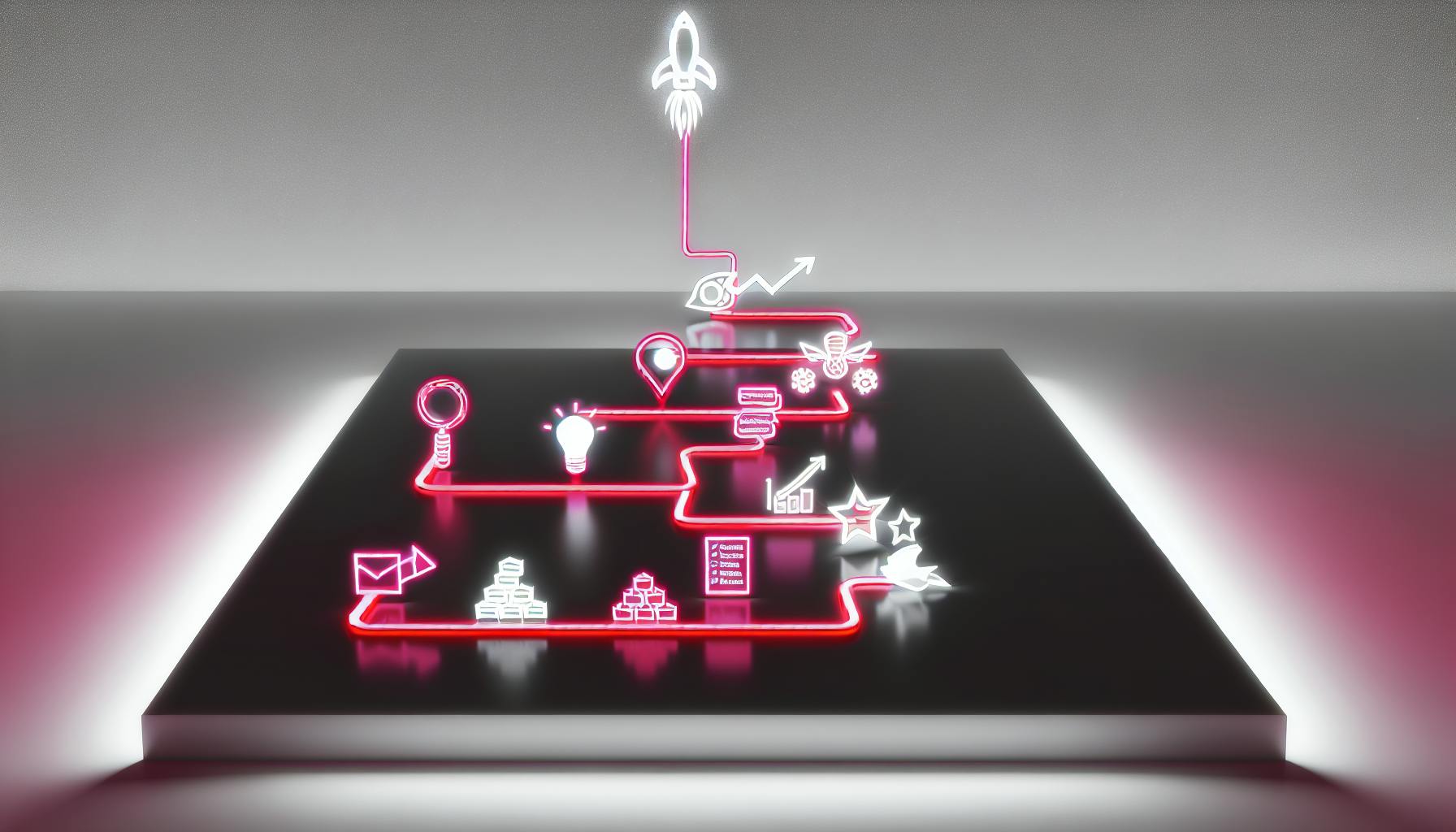HIPAA compliance is crucial for healthcare MVP apps that handle Protected Health Information (PHI). Failure to comply can result in severe penalties and damage to your reputation. This checklist outlines the key requirements for ensuring HIPAA compliance in 2024:
Data Protection
- Use strong encryption (AES, RSA) to protect PHI
- Implement access controls and multi-factor authentication
- Secure data transfers with peer-to-peer technology and HTTPS
Monitoring and Auditing
- Log all user activity and data access attempts
- Maintain detailed audit trails of system changes
- Conduct regular security audits and risk assessments
Policies and Training
- Require third-party compliance agreements (Business Associate Agreements)
- Train staff on HIPAA regulations and security best practices
- Continuously monitor for compliance and update policies
By following this checklist, you can protect sensitive patient data, build trust with users, and avoid costly penalties for non-compliance.
Related video from YouTube
Key HIPAA Rules for Healthcare MVPs

HIPAA compliance is crucial for healthcare app development, especially for Minimum Viable Products (MVPs). To ensure the security and integrity of patient data, it's essential to understand the key HIPAA rules that must be integrated into the development of healthcare MVPs.
Mandatory Data Encryption
HIPAA requires encrypting patient data to protect it from unauthorized access. This means converting patient information into a secure format before sending and deciphering it before receiving. Only authorized individuals with a key can access the encrypted data.
Controlling Access
HIPAA demands strict control over who can view and use patient data. Measures like user authentication and role-based access restrict access to only the necessary information. Secure login mechanisms also prevent unauthorized access.
Following Communication Protocols
For HIPAA compliance, all communication between the app and other systems must occur through secure channels. This includes using protocols like HTTPS to encrypt information before transmission.
Conducting Regular Security Audits and Risk Assessments
HIPAA compliance is an ongoing process. Developers must regularly examine the app to identify and address potential vulnerabilities. This proactive approach helps maintain continuous compliance and speeds up resolution in case of security concerns.
Detailed User Activity Logging
Maintaining detailed logs of user activities within the app is crucial. These logs serve as a defense against data breaches, providing information about users and their activities. This makes it easy to identify sources of cybersecurity compromises during audits or investigations.
2024 HIPAA Compliance Checklist for MVP Apps
Here is a comprehensive list of requirements and best practices to ensure MVP apps meet the latest HIPAA compliance standards in 2024.
1. Use Strong Data Encryption
Protect patient data with robust encryption methods, such as AES and RSA algorithms with strong keys. This ensures sensitive health information remains protected from unauthorized access.
2. Control User Access and Permissions
Establish effective access management to protect sensitive health information. Implement:
- Role-based access controls to ensure users only have access to necessary information
- Strong password policies
- Multi-factor authentication
- Regular user access reviews
3. Secure Data Transfers with P2P
Use peer-to-peer technology to maintain secure and efficient data transfers. Utilize secure communication protocols, such as HTTPS, to encrypt data in transit.
4. Enhance User Authentication
Verify user identities and safeguard access with multi-factor authentication. Implement a combination of authentication methods, including:
- Biometric authentication
- Password authentication
- One-time codes
5. Use Secure Data Transmission Protocols
Combine encryption and secure protocols to ensure the safety of data in transit. Implement:
- Secure socket layer (SSL) or transport layer security (TLS) protocols
- Encryption of data transmitted between systems
6. Log User Activity
Monitor and audit user activity with detailed logs. Implement a logging mechanism that captures:
- All user activity, including login attempts and data access
- System modifications
- Regularly review logs to identify potential security incidents and ensure compliance with HIPAA regulations
7. Maintain Audit Trails
Track all system activity to support security and compliance audits. Implement an audit trail mechanism that captures:
- All system activity, including user interactions and data modifications
- System changes
- Regularly review audit trails to identify potential security incidents and ensure compliance with HIPAA regulations
8. Require Third-Party Compliance Agreements
Ensure third-party vendors adhere to HIPAA standards through binding agreements. Establish business associate agreements (BAAs) with all third-party vendors.
9. Train Users on HIPAA Best Practices
Educate staff and users on best practices to avoid unintentional compliance violations. Provide regular training and awareness programs to educate users on:
- HIPAA regulations
- Security best practices
- The importance of protecting sensitive health information
10. Continuously Monitor Compliance
Maintain ongoing compliance and user trust by regularly reviewing and updating policies, procedures, and technical controls. Conduct regular security audits and risk assessments to identify potential vulnerabilities and implement corrective actions.
Choosing HIPAA-Compliant Tech and Partners
When building a HIPAA-compliant MVP app, selecting the right technologies and partners is crucial. This involves evaluating vendors and their solutions to ensure they meet the necessary security and compliance requirements.
Evaluating Vendors for HIPAA Compliance
Here are some key considerations to keep in mind when evaluating vendors:
| Consideration | Description |
|---|---|
| Business Associate Agreement (BAA) | Will the vendor sign a BAA, outlining their responsibilities for protecting PHI and ensuring compliance with HIPAA regulations? |
| HIPAA Compliance Commitment | Does the vendor take HIPAA compliance seriously, with robust access management, data encryption, and regular security audits? |
| Third-Party Certification | Has the vendor obtained third-party HIPAA compliance certification, such as the Common Security Framework (CSF) Certified status awarded by the Health Information Trust Alliance (HITRUST)? |
By carefully evaluating vendors and their solutions, you can ensure that your MVP app is built on a foundation of HIPAA compliance, protecting sensitive patient data and maintaining the trust of your users.
sbb-itb-4cff84e
Testing and Monitoring for Ongoing Compliance
Regular testing and monitoring are crucial to ensure your MVP app remains HIPAA compliant. This involves identifying potential vulnerabilities and addressing them before they become major issues.
Continuous Monitoring for Compliance
To stay ahead of potential threats, you should:
- Conduct regular security audits and risk assessments
- Implement a continuous monitoring program to detect and respond to security incidents
- Perform regular software updates and patch management to ensure the latest security fixes
Testing for HIPAA Compliance
Testing your MVP app for HIPAA compliance involves evaluating its security controls. This includes:
| Test | Description |
|---|---|
| Penetration testing | Identify weaknesses in your app's defenses |
| Vulnerability assessments | Evaluate your app's susceptibility to attacks |
| User access control testing | Verify that access controls are working correctly |
| Data encryption and transmission testing | Ensure data is properly encrypted and transmitted |
By regularly testing and monitoring your MVP app, you can ensure ongoing HIPAA compliance and maintain the trust of your users.
Staying Up-to-Date with HIPAA Regulations
HIPAA regulations are constantly changing, and it's crucial to stay informed to avoid non-compliance and potential penalties. In 2024, there are significant changes to cybersecurity requirements, incident response plans, and data encryption practices.
To stay ahead of these changes, follow these steps:
- Regularly review the HIPAA website for updates and announcements
- Attend industry conferences and workshops to stay informed about the latest developments
- Participate in online forums and discussion groups to stay connected with industry peers
- Consult with HIPAA compliance experts and legal counsel to ensure your app meets the latest requirements
By staying informed and proactive, you can ensure your MVP app remains HIPAA compliant and maintains the trust of your users.
Here are some key resources to help you stay up-to-date:
| Resource | Description |
|---|---|
| HIPAA Website | Official website for HIPAA updates and announcements |
| Industry Conferences | Attend conferences and workshops to stay informed about the latest developments |
| Online Forums | Participate in online forums and discussion groups to stay connected with industry peers |
| HIPAA Compliance Experts | Consult with experts and legal counsel to ensure your app meets the latest requirements |
Remember, staying informed is crucial to ensuring your MVP app remains HIPAA compliant. By following these steps and staying up-to-date with the latest regulations, you can maintain the trust of your users and avoid potential penalties.
HIPAA Compliance: Key to Health Tech Success
HIPAA compliance is a critical aspect of healthcare technology, ensuring the protection of sensitive patient data and maintaining trust between healthcare providers and their patients. As the healthcare industry continues to evolve, the importance of HIPAA compliance cannot be overstated.
Why HIPAA Compliance Matters
HIPAA compliance is not just a regulatory requirement; it is essential for building trust with patients and protecting sensitive health information. By implementing robust security measures, healthcare providers can ensure the confidentiality, integrity, and availability of patient data.
Benefits of HIPAA Compliance
| Benefit | Description |
|---|---|
| Protects Patient Data | Ensures the confidentiality, integrity, and availability of patient data |
| Builds Trust | Demonstrates a commitment to patient privacy and security |
| Avoids Penalties | Helps healthcare providers avoid costly penalties and reputational damage associated with data breaches |
Conclusion
In conclusion, HIPAA compliance is a critical aspect of healthcare technology, and MVP apps must prioritize data protection and security to maintain trust with patients and avoid costly penalties. By following the essential steps outlined in this article, healthcare providers can ensure HIPAA compliance and protect sensitive patient data.
FAQs
Do apps need to be HIPAA compliant?
If your app handles Protected Health Information (PHI) on behalf of a Covered Entity or Business Associate, you must comply with HIPAA. This includes apps that:
| App Feature | HIPAA Compliance Required |
|---|---|
| Access medical records or test results | Yes |
| Provide telehealth or remote patient monitoring services | Yes |
| Handle medical billing or insurance information | Yes |
| Share data with healthcare providers or health plans | Yes |
| Track general health and fitness data (e.g., calorie intake, exercise routines, step counts) | No |
If you're unsure whether your app requires HIPAA compliance, consult a HIPAA compliance expert to ensure you meet all necessary regulatory requirements for handling sensitive health data.


